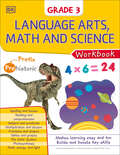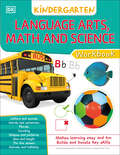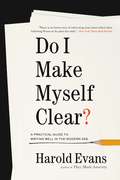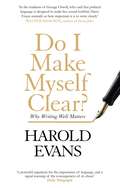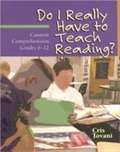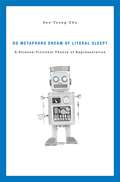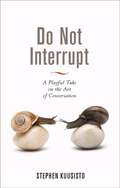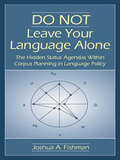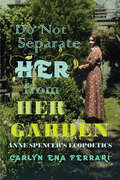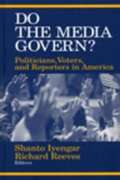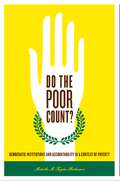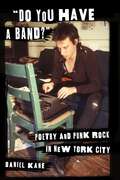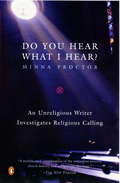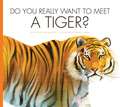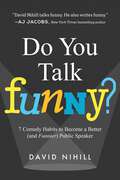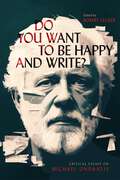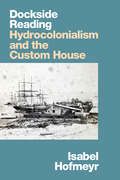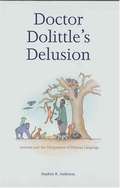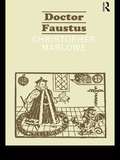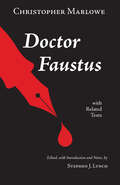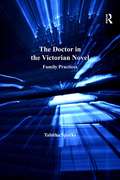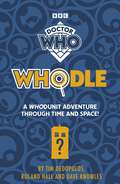- Table View
- List View
DK Workbooks: Language Arts Math and Science Grade 3 (DK Workbooks)
by DKBoost your child's skills with fun activities and exercises that introduce key concepts in spelling, math, and science.Whether you want to teach your child at home, give them extra support outside the classroom, or find fun stimulation for your budding genius, this workbook has something for everyone. Home learning can be fun with these exercises, featuring drawing, puzzles, kitchen-science experiments, and more. This write-in book provides an introduction to key concepts and skills in literacy, numeracy, and science. To help the parent/carer, there are answer pages and notes providing further guidance; and there's no need to buy any specialist equipment or craft supplies - just pick up a pencil!With 60 activity pages to keep your child entertained as well as educated and a reward certificate on completion, there's something in a DK workbook for every child to learn and enjoy.
DK Workbooks: Language Arts Math and Science Kindergarten (DK Workbooks)
by DKBoost your child's skills with fun activities and exercises that introduce key concepts in spelling, math, and science.Whether you want to teach your child at home, give them extra support outside the classroom, or find fun stimulation for your budding genius, this workbook has something for everyone. Home learning can be fun with these exercises, featuring drawing, puzzles, kitchen-science experiments, and more. This write-in book provides an introduction to key skills in literacy, numeracy, and science. To help the parent/carer, there are answer pages and notes providing further guidance; and there's no need to buy any specialist equipment or craft supplies - just pick up a pencil!With 60 activity pages to keep your child entertained as well as educated and a reward certificate on completion, there's something in a DK workbook for every child to learn and enjoy.
Do I Make Myself Clear?: Why Writing Well Matters
by Harold EvansA wise and entertaining look at the struggle for clarity in modern journalism by one of the greatest newspaper editors of our time. Harry Evans has edited everything from the urgent files of battlefield reporters to the complex thought processes of Henry Kissinger. He's even been knighted for his services to journalism. In DO I MAKE MYSELF CLEAR?, he brings his indispensable insight to us all in his definite guide to writing well.The right words are oxygen to our ideas, but the digital era, with all of its TTYL, LMK, and WTF, has been cutting off that oxygen flow. The compulsion to be precise has vanished from our culture, and in writing of every kind we see a trend towards more--more speed and more information but far less clarity. Evans provides practical examples of how editing and rewriting can make for better communication, even in the digital age. DO I MAKE MYSELF CLEAR? is an essential text, and one that will provide every writer an editor at his shoulder.
Do I Make Myself Clear?: Why Writing Well Matters
by Harold EvansHarold Evans has edited everything from the urgent files of battlefield reporters to the complex thought processes of Henry Kissinger, and he has been knighted for his services to journalism. In Do I Make Myself Clear?, his definitive guide to writing well, Evans brings his indispensable insight to the art of clear communication.The right words are oxygen to our ideas, but the digital era, with all of its TTYL, LMK and WTF, has been cutting off that oxygen flow. The compulsion to be precise has vanished from our culture, and in writing of all kinds we see a trend towards more - more speed and more information, but far less clarity. Evans provides practical examples of how editing and rewriting can make for better communication, even in the digital age. Do I Make Myself Clear? is an essential text, and one that will provide every reader an editor at their shoulder.
Do I Really Have to Teach Reading? Content Comprehension, Grades 6-12
by Cris Tovani"Do I really have to teach reading?" This is the question many teachers of adolescents are asking, wondering how they can possibly add a new element to an already overloaded curriculum. And most are finding that the answer is "yes. " If they want their students to learn complex new concepts in different disciplines, they often have to help their students become better readers. Building on the experiences gained in her own language arts classroom as well as those of colleagues in different disciplines, Cris Tovani, author ofI Read It, but I Don't Get It, takes on the challenge of helping students apply reading comprehension strategies in any subject. In Do I Really Have to Teach Reading?, Cris shows how teachers can expand on their content expertise to provide instruction students need to understand specific technical and narrative texts. The book includes: examples of how teachers can model their reading process for students; ideas for supplementing and enhancing the use of required textbooks; detailed descriptions of specific strategies taught in context; stories from different high school classrooms to show how reading instruction varies according to content; samples of student work, including both struggling readers and college-bound seniors; a variety of "comprehension constructors": guides designed to help students recognize and capture their thinking in writing while reading; guidance on assessing students; tips for balancing content and reading instruction. Cris's humor, honesty, and willingness to share her own struggles as a teacher make this a unique take on content reading instruction that will be valuable to reading teachers as well as content specialists.
Do Metaphors Dream of Literal Sleep?: A Science-Fictional Theory of Representation
by Seo-Young ChuIn culture and scholarship, science-fictional worlds are perceived as unrealistic and altogether imaginary. Seo-Young Chu offers a bold challenge to this perception of the genre, arguing instead that science fiction is a form of “high-intensity realism” capable of representing non-imaginary objects that elude more traditional, “realist” modes of representation. Powered by lyric forces that allow it to transcend the dichotomy between the literal and the figurative, science fiction has the capacity to accommodate objects of representation that are themselves neither entirely figurative nor entirely literal in nature. Chu explores the globalized world, cyberspace, war trauma, the Korean concept of han, and the rights of robots, all as referents for which she locates science-fictional representations in poems, novels, music, films, visual pieces, and other works ranging within and without previous demarcations of the science fiction genre. In showing the divide between realism and science fiction to be illusory, Do Metaphors Dream of Literal Sleep? sheds new light on the value of science fiction as an aesthetic and philosophical resource—one that matters more and more as our everyday realities grow increasingly resistant to straightforward representation.
Do Not Interrupt: A Playful Take on the Art of Conversation
by Stephen KuusistoIn this erudite and playful primer on the art of conversation, Stephen Kuusisto vigorously tackles the slippery subject of how to converse meaningfully with others. Kuusisto employs a wide range of personal anecdotes, classical texts, and an engaging style to illustrate his points. In seven short, provocative and imaginatively wrought chapters, he spins a compelling argument for the joys of "being connected," and skillfully shows how to achieve this bond in everyday exchanges.
DO NOT Leave Your Language Alone: The Hidden Status Agendas Within Corpus Planning in Language Policy
by Joshua A. FishmanThis book, focused on corpus planning in language policy, provides a broad, integrative framework and also discusses multiple languages in detail. It provides readers with great familiarity with a wide range of language cases and at the same time gives them the theoretical tools and analysis to see how they inter-relate.The novelty of this volume i
Do Not Separate Her from Her Garden: Anne Spencer’s Ecopoetics
by Carlyn Ena FerrariAnne Spencer’s identity as an artist grew from her relationship to the natural world. During the New Negro Renaissance with which she is primarily associated, critics dismissed her writings on nature as apolitical and deracinated. Do Not Separate Her from Her Garden corrects that misconception, showing how Spencer used the natural world in innovative ways to express her Black womanhood, feminist politics, spirituality, and singular worldview. Employing ecopoetics as an analytical frame, Carlyn Ferrari recenters Spencer’s archive of ephemeral writings to cut to the core of her artistic ethos. Drawing primarily on unpublished, undated poetry and prose, this book represents a long overdue reassessment of an underappreciated literary figure. Not only does it resituate Spencer in the pantheon of American women of letters, but it uses her environmental credo to analyze works by Alice Walker, Zora Neale Hurston, and Dionne Brand, positioning ecocritical readings as a new site of analysis of Black women’s writings.
Do the Americas Have a Common Literature?
by Gustavo Pérez FirmatThis volume takes an important step toward the discovery of a common critical heritage that joins the diverse literatures of North America and Latin America. Traditionally, literary criticism has treated the literature of the Americas as "New World" literature, examining it in relation to its "Old World"--usually European--counterparts. This collection of essays redirects the Eurocentric focus of earlier scholarship and identifies a distinctive pan-American consciousness.The essays here place the literature of the Americas in a hemispheric context by drawing on approaches derived from various schools of contemporary critical thought--Marxism, feminism, culture studies, semiotics, reception aesthetics, and poststructuralism. As part of their search for a distinctly New World literary idiom, the contributors engage not only the major North American and Spanish American writers, but also such "marginal" or "minor" literatures as Chicano, African American, Brazilian, and Québecois. In identifying areas of agreement and confluence, this work lays the groundwork for finding historical, ideological, and cultural homogeneity in the imaginative writing of the Americas.Contributors. Lois Parkinson Zamora, David T. Haberly, José David Saldívar, Antonio Benítez-Rojo, José Piedra, Doris Sommer, Enrico Mario Santí, Eduardo González, John Irwin, Wendy B. Faris, René Prieto, Jonathan Monroe, Gustavo Pérez Firmat
Do the Media Govern? Politicians, Voters, and Reporters in America
by Shanto Iyengar Richard ReevesEssays.
Do the Poor Count?: Democratic Institutions and Accountability in a Context of Poverty (G - Reference, Information and Interdisciplinary Subjects)
by Michelle M. Taylor-RobinsonLatin America’s flirtation with neoliberal economic restructuring in the 1980s and 1990s (the so-called Washington Consensus strategy) had the effect of increasing income inequality throughout the region. The aim of this economic policy was in part to create the conditions for stable democracy by ensuring efficient economic use of resources, both human and capital, but the widening gap between rich and poor threatened to undermine political stability. At the heart of the dilemma faced by these new democracies is the question of accountability: Are all citizens equally capable of holding the government accountable if it does not represent their interests? In this book, Michelle Taylor-Robinson investigates both the formal institutions of democracy (such as electoral rules and the design of the legislative and executive branches) and informal institutions (such as the nomination procedures of political parties and patron-client relationships) to see what incentives legislators have to pay attention to the needs of poor people and thereby adequately represent their interests.
"Do You Have a Band?": Poetry and Punk Rock in New York City
by Daniel KaneDuring the late 1960s, throughout the 1970s, and into the 1980s, New York City poets and musicians played together, published each other, and inspired one another to create groundbreaking art. In "Do You Have a Band?", Daniel Kane reads deeply across poetry and punk music to capture this compelling exchange and its challenge to the status of the visionary artist, the cultural capital of poetry, and the lines dividing sung lyric from page-bound poem.Kane reveals how the new sounds of proto-punk and punk music found their way into the poetry of the 1960s and 1970s downtown scene, enabling writers to develop fresh ideas for their own poetics and performance styles. Likewise, groups like The Fugs and the Velvet Underground drew on writers as varied as William Blake and Delmore Schwartz for their lyrics. Drawing on a range of archival materials and oral interviews, Kane also shows how and why punk musicians drew on and resisted French Symbolist writing, the vatic resonance of the Beat chant, and, most surprisingly and complexly, the New York Schools of poetry. In bringing together the music and writing of Richard Hell, Patti Smith, and Jim Carroll with readings of poetry by Anne Waldman, Eileen Myles, Ted Berrigan, John Giorno, and Dennis Cooper, Kane provides a fascinating history of this crucial period in postwar American culture and the cultural life of New York City.
Do You Hear What I Hear?: An Unreligious Writer Investigates Religious Calling
by Minna ProctorAt the first revelation that her father, a sixtyish university professor, wants to become an Episcopal priest, Minna Proctor is flummoxed. She neither encourages nor disparages him because she simply doesn’t know what it means. Brought up primarily by her mother in a household without any religious expression or guidance, Proctor was surprised to learn that her unconventionally charming, intellectual father had a religious life, and what’s more, a higher calling. When he is summarily turned away, Proctor delves into the byzantine discernment process that rejected her father from the priesthood and the pivotal notion of calling.
Do You Hear What I Hear?: An Unreligious Writer Investigates Religious Calling
by Minna ProctorHow does a young, secular intellectual understand her sixtyish university-professor father's sudden calling to become an Episcopal priest? This is the question that inspired Minna Proctor's candid, intelligent, and provocative examination. When her father is summarily rejected, Proctor sets out to find out why the Church makes it so insanely (and appropriately) difficult to join the priesthood and to uncover the historical and doctrinal foundations of its "discernment" process. Confronting the cultural forces that shaped her unreligious early life, her parents' divorce, and her father's spiritual awakening, Do You Hear What I Hear? is at once an intellectual quest based on interviews with clergy and religious scholars and readings of classic faith narratives, a wry document of filial love and incomprehension, and a layperson's fascinating perspective on spiritual calling.
Do you Really Want to Meet A Tiger
by Cari MeisterA child goes on an adventure to Russia as a junior researcher to study tigers in the wild, and learns about this endangered species.
Do You Really Want to Visit a Wetland? (Into Reading, Read Aloud Module 7 #3)
by Bridget Heos Daniele FabbriNIMAC-sourced textbook
Do You Talk Funny?: 7 Comedy Habits to Become a Better (and Funnier) Public Speaker
by David NihillPublic speaking can be terrifying. For David Nihill, the idea of standing in front of an audience was scarier than cliff jumping into a thorny pit of spiders and mothers-in-law. Without a parachute or advanced weaponry. Something had to change. In what doesn't sound like the best plan ever, David decided to overcome his fears by pretending to be an accomplished comedian called "Irish Dave" for one full year, crashing as many comedy clubs, festivals, and shows as possible. One part of the plan was at least logical: he was already Irish and already called Dave. In one year, David went from being deathly afraid of public speaking to hosting a business conference, regularly performing stand-up comedy and winning storytelling competitions in front of packed houses. And he did it by learning from some of the best public speakers in the world: stand-up comedians. Do You Talk Funny?: 7 Comedy Habits to Become a Better (and Funnier) Public Speaker shows how the key principles of stand-up comedy can be applied to your speaking engagements and presentations to make you funnier, more interesting, and better looking. (Or at least two of the three.) Whether you are preparing for a business presentation, giving a wedding toast, defending your thesis, raising money from investors, or simply want to take on something you're afraid of, this book will take you from sweaty to stage-ready. You'll learn how to: - Craft a story and content that your audience will want to listen to - Find the funniest parts of your material and how to get to them faster - Deal with stage fright - Master the two most important parts of your performance: timing and delivery Ten percent of the author's proceeds from this book will go to Arash Bayatmakou via Help Hope Live until he is fully back on his feet and thereafter to one of the many facing the same challenges after suffering a severe spinal cord injury.
Do You Want to Be Happy and Write?: Critical Essays on Michael Ondaatje
by Robert LeckerMichael Ondaatje has achieved international prominence and recognition in a way that few other writers have, let alone Canadian writers. This popularity is most pronounced for works of historical fiction such as The English Patient, winner of the Golden Man Booker Prize, and In the Skin of a Lion, set in 1930s Toronto, shortlisted for the Governor General’s Award and winner of the Canada Reads competition in 2002. But Ondaatje has been writing for over fifty years, and his innovative works include some of the most accomplished poetry in the English-speaking world.Taking its title from a question in his poem “Tin Roof,” Do You Want to Be Happy and Write? reassesses Ondaatje’s writing and the role of the poet, from his troubled explorations of the self-reflexive artist to his most recent novels. Comprehensive in both approach and coverage, this new collection offers groundbreaking analysis informed by an understanding of Ondaatje’s entire oeuvre, placing early poetry collections like The Collected Works of Billy the Kid and There’s a Trick with a Knife I’m Learning to Do alongside the full range of his novels and his extensive work as a literary editor. The book highlights the transnational, postcolonial, and diasporic issues that have become increasingly apparent in Ondaatje’s work. Contributors explore key interests that have reappeared and been rethought across his fiction and poetry: the construction of identity; the nature of memory and its relation to family origins and history; the human body as a site of contestation and struggle; the contrast between Eastern and Western values and the Southeast Asian diaspora; the writer’s responsibility in depictions of war, psychic trauma, and genocide; and an ongoing fascination with the visual and the media of photography and film.An eclectic celebration of an iconic author, Do You Want to Be Happy and Write? offers an authoritative reference point for scholars and students of literature and reveals new facets of a major author to his readers around the world.
Dockside Reading: Hydrocolonialism and the Custom House
by Isabel HofmeyrIn Dockside Reading Isabel Hofmeyr traces the relationships among print culture, colonialism, and the ocean through the institution of the British colonial Custom House. During the late nineteenth and early twentieth centuries, dockside customs officials would leaf through publications looking for obscenity, politically objectionable materials, or reprints of British copyrighted works, often dumping these condemned goods into the water. These practices, echoing other colonial imaginaries of the ocean as a space for erasing incriminating evidence of the violence of empire, informed later censorship regimes under apartheid in South Africa. By tracking printed matter from ship to shore, Hofmeyr shows how literary institutions like copyright and censorship were shaped by colonial control of coastal waters. Set in the environmental context of the colonial port city, Dockside Reading explores how imperialism colonizes water. Hofmeyr examines this theme through the concept of hydrocolonialism, which puts together land and sea, empire and environment.
Doctor Dolittle’s Delusion: Animals and the Uniqueness of Human Language
by Stephen R. AndersonCan animals be taught a human language and use it to communicate? Or is human language unique to human beings, just as many complex behaviors of other species are uniquely theirs? This engrossing book explores communication and cognition in animals and humans from a linguistic point of view and asserts that animals are not capable of acquiring or using human language. Stephen R. Anderson explains what is meant by communication, the difference between communication and language, and the essential characteristics of language. Next he examines a variety of animal communication systems, including bee dances, frog vocalizations, bird songs, and alarm calls and other vocal, gestural, and olfactory communication among primates. Anderson then compares these to human language, including signed languages used by the deaf. Arguing that attempts to teach human languages or their equivalents to the great apes have not succeeded in demonstrating linguistic abilities in nonhuman species, he concludes that animal communication systems--intriguing and varied though they may be--do not include all the essential properties of human language. Animals can communicate, but they can't talk.
Doctor Faustus: Playscript (More For Teens Ser.)
by Christopher MarloweIn this classic and much-loved edition of Marlowe's best-known play, John D. Jump provides the reader with a wealth of introductory and explanatory material. As well as a fascinating chronology of Marlowe's life and works and extensive notes on the text, this edition includes a substantial and authoritative historical introduction to the play. An essential text whether studying the play in detail or coming to it for the first time.
Doctor Faustus: With Related Texts
by Christopher MarloweThis new edition of Christopher Marlowe&’s Doctor Faustus offers the complete 1604 A-text with embedded selections from the 1616 B-text. Its innovative format will make it easier for readers to note differences between these texts and to consider what is gained and lost in viewing them both separately and together. A full Introduction to the play, notes, and a rich selection of related texts further enhance the value of this edition to students of Renaissance drama, Reformation theology, magic, and occult philosophy.
The Doctor in the Victorian Novel: Family Practices
by Tabitha SparksWith the character of the doctor as her subject, Tabitha Sparks follows the decline of the marriage plot in the Victorian novel. As Victorians came to terms with the scientific revolution in medicine of the mid-to-late nineteenth century, the novel's progressive distance from the conventions of the marriage plot can be indexed through a rising identification of the doctor with scientific empiricism. A narrative's stance towards scientific reason, Sparks argues, is revealed by the fictional doctor's relationship to the marriage plot. Thus, novels that feature romantic doctors almost invariably deny the authority of empiricism, as is the case in George MacDonald's Adela Cathcart. In contrast, works such as Wilkie Collins's Heart and Science, which highlight clinically minded or even sinister doctors, uphold the determining logic of science and, in turn, threaten the novel's romantic plot. By focusing on the figure of the doctor rather than on a scientific theme or medical field, Sparks emulates the Victorian novel's personalization of tropes and belief systems, using the realism associated with the doctor to chart the sustainability of the Victorian novel's central imaginative structure, the marriage plot. As the doctors Sparks examines increasingly stand in for the encroachment of empirical knowledge on a morally formulated artistic genre, their alienation from the marriage plot and its interrelated decline succinctly herald the end of the Victorian era and the beginning of Modernism.
Doctor Who: Whodle (Doctor Who)
by Roland Hall Doctor WhoJoin your favourite Time Lord (every one of them!) as a whole host of puzzling mysteries await . . .Which of three possible substances would make the best weapon against a Dalek?How can you tell which mannequin is an Auton?Where in the universe is the Master hiding?Travel through space and time, and across worlds, ships and space stations, as you crack clues, make deductions and solve cases.Using your puzzling powers of logic (plus maybe a sonic screwdriver and some physic paper), it’s down to YOU to help the Doctor and their companions fight monsters and save the day.
